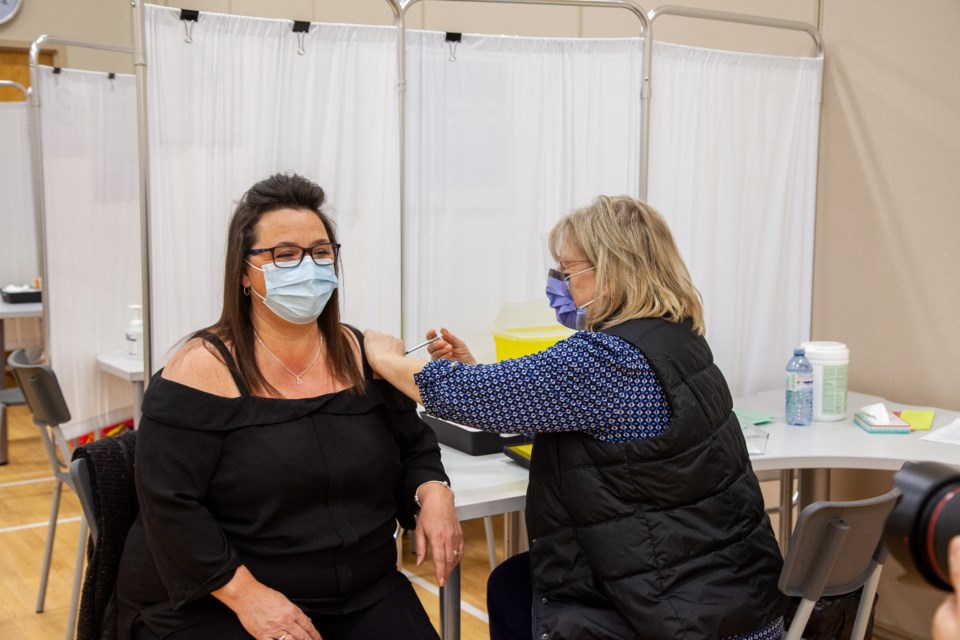York Region continues to go its own way while distributing the vaccine to residents as it tries to win the "war" between the rise of the COVID-19 variants and the vaccines, a battle some experts do not believe can be won.
By aggressively pushing through the age categories ahead of the province's schedule, opting out of the provincial booking system and planning to vaccinate younger residents in certain hotspot areas, medical officer of health Dr, Karim Kurji believes the vaccine can still contain the new COVID-19 variants.
"Most experts think the variants will win, but we think otherwise that the vaccines can win. But that requires a lot of speed and nimbleness," Kurji told regional councillors at their meeting on Thursday.
The COVID-19 variants now make up more than 50 per cent of new daily cases in York Region, and although they will almost certainly end up becoming the dominant strains, Kurji said it is not too late to keep them in check.
"(Data collected from wastewater samples), which has its own limitations, seems to suggest exponential growth in the variants of concern. However, my own interpretation of that when you compare it to epidemic curves, it clearly shows that we, through good close contact management, can bend down that growth," he said.
"Most parts of Ontario have a doubling time of nine days, and we have a doubling time of between 12 and 13 days."
Kurji explained the public health unit has been moving down through the five-year age groups eligible to receive the vaccine so quickly because they are not waiting for every person in an age group to be immunized before moving onto the next one.
"Rather than waiting for to see what proportion of individuals have been immunized, instead, we look at the bookings. When the number of bookings begins plummeting, and there is a lot of capacity (freed up), we believe that is the time to move onto the next age group," said Kurji.
"If we don't do that, then our capacity can go unutilized. So it's a delicate balance between ensuring we have adequate vaccines and not wasting any capacity as we go forward."
York Region has been able to change its own approach for the vaccine rollout, in part because the health unit decided against using the provincial COVAX patient management and booking system that the government launched March 15.
Kurji told councillors that public health unit felt the benefits of keeping its own independent system outweighed the drawbacks.
"It has enabled us to have nimbleness and speed, but it comes with the price for residents in that instead of having one booking system, they have to navigate another booking system on our website. It also comes at a price for our staff because they have to upload data to COVAX from the site," he said.
"But the advantage of speed outweighs any other disadvantage, especially during this 'war' between the variants and the vaccines."
That nimbleness is on display in the health unit's plan to begin vaccinating people aged 50 to 60 within five areas of the region which have emerged as hotspots — four specific postal codes in Vaughan and one in Markham.
Once those roughly 23,000 people in those areas are vaccinated, the plan is to move onto the 50 to 55, and 45 to 50 age groups. Older residents will have to continue to wait their turn at the mass vaccination clinics.
"We believe that we need to change our strategies for vaccination at the earliest opportunity and to be more flexible in how we contain the variants. One way to do that is to focus on these hot zones and on the younger age groups in those zones," said Kurji.
"Although we have been immunizing the elderly thus far, in the hot zones, we will not be touching them because the majority, 70 per cent, of the variants are occurring in people between the ages of 20 and 70.
Public health is pushing to have pharmacists in these areas approved to receive the AstraZeneca vaccine, which can be used to immunize people in the hotspots as well.



